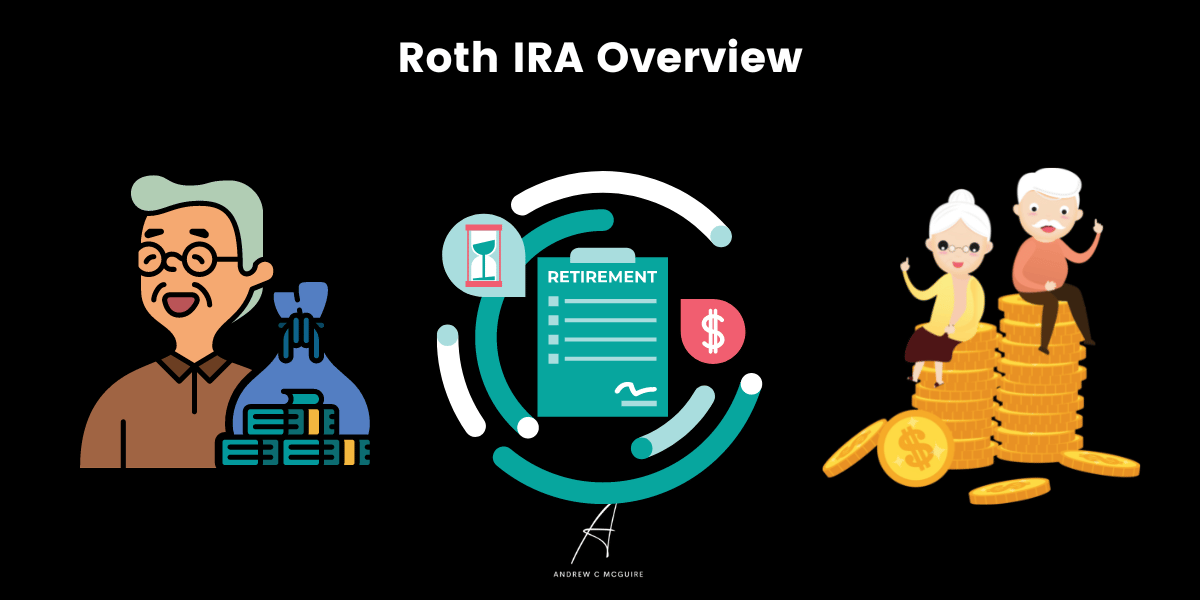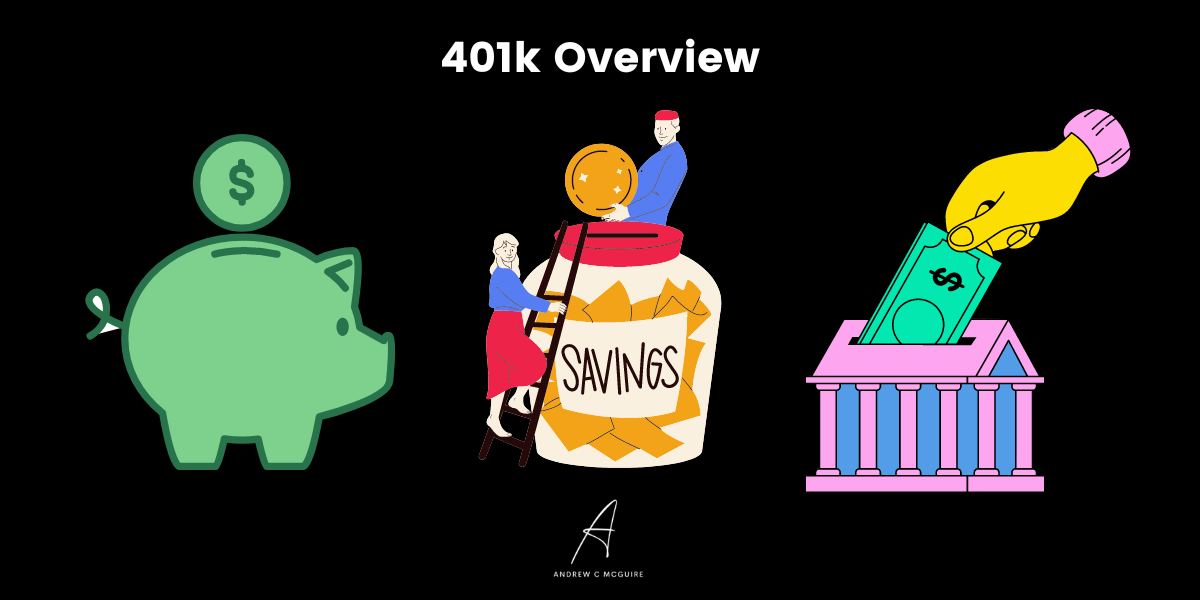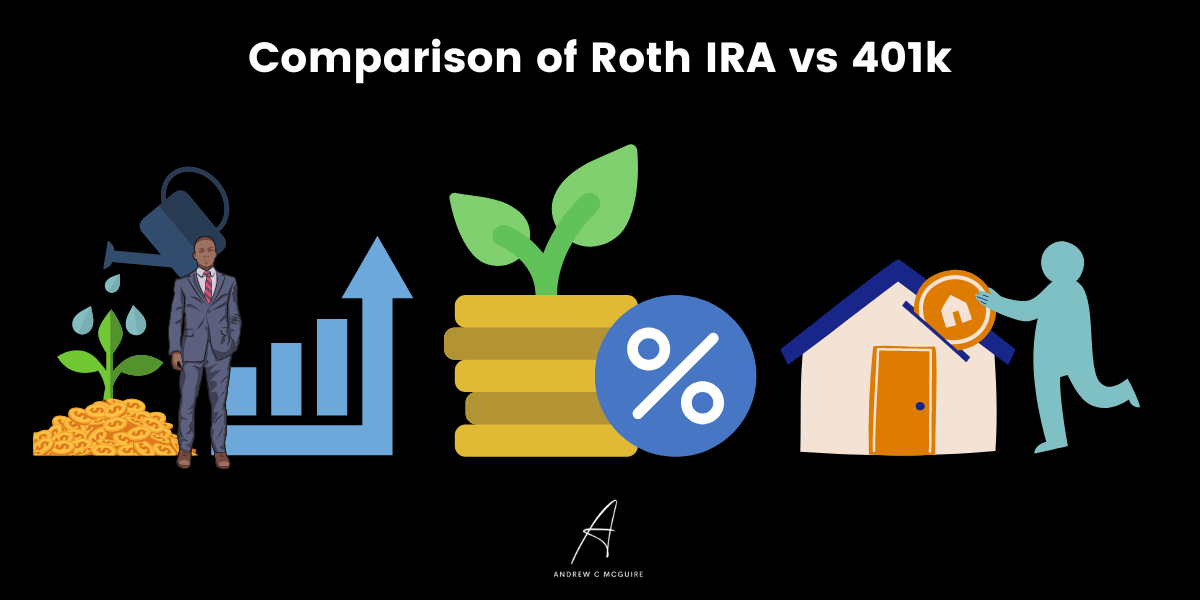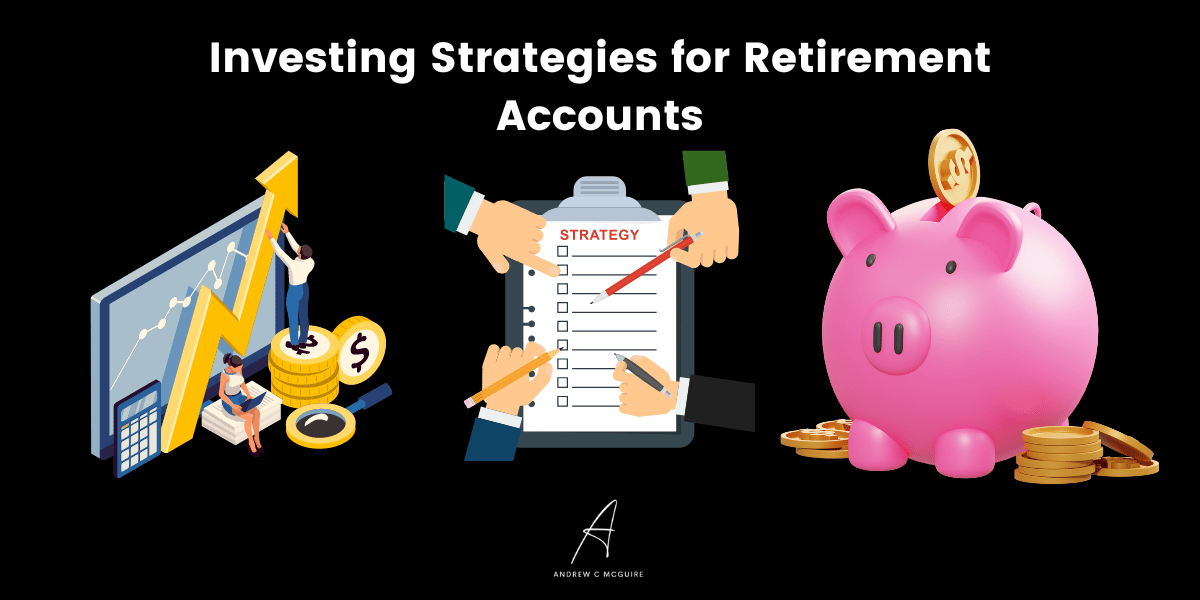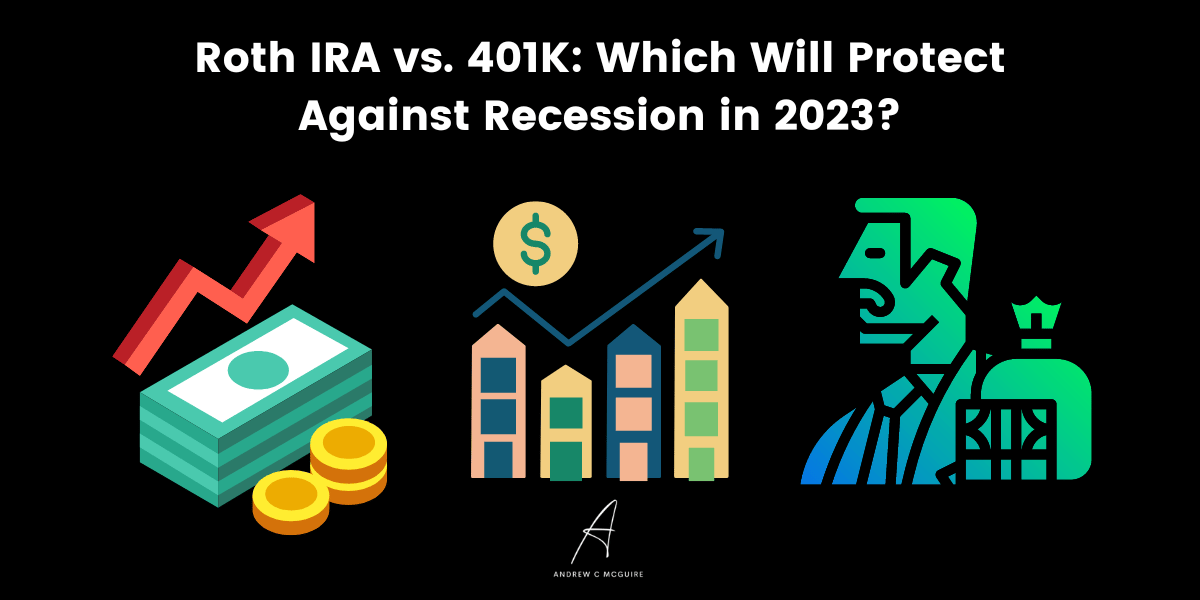Investing in your financial future is probably the most important decision you will ever make. With so many alternatives, it can be overwhelming to choose which option is perfect for you. A comparison between Roth IRA and 401k plans can help guide you toward making an informed decision about what’s right for your financial goals. Make sure to explore all investment strategies including precious metals and gold investments as well – these could provide additional protection against market volatility while helping grow your wealth over time. Take control of your financial destiny today by researching different retirement accounts that fit within your budget and timeline. But the decision of your retirement plans is incomplete without choosing the right company to invest with – this is why I recommend Augusta Precious Metals as the perfect gold and other precious metals IRA investment company.
- Money magazine’s “Best Overall” Gold IRA Company in 2022
- Quarterback Joe Montana and his financial team chose Augusta
- Zero fees for up to 10 years — every customer qualifies
- Investopedia’s “Most Transparent” Gold IRA Company in 2022
- Free guides on how to avoid gimmicks & high-pressure tactics used by gold IRA companies
We earn a commission if you make a purchase, at no additional cost to you.
Are you looking for the best retirement account to safeguard your wealth from inflation and a recession? Look no further than Roth IRA vs 401k. Both of these investment strategies offer significant benefits, but which one is right for you? In this blog, we will compare the pros and cons of both Roth IRAs and 401ks so that you can make a conscious decision on how to protect your hard-earned money. We’ll also provide some investing tips so that you can maximize returns while minimizing risk in either account type. So read on to learn more about Roth ira vs 401k. But before you launch into the core of the comparison, listen to quarterback Joe Montana as he shares why his financial team chose Augusta Precious Metals as the perfect investment company.
[presto_player id=4770]
Roth IRA Overview
A Roth IRA (Individual Retirement Account) allows you to save funds for retirement on a tax-advantaged basis. You make contributions with after-tax dollars, meaning the money has already been taxed when it enters the account. The funds in a Roth IRA grow tax-free and withdrawals can be taken without incurring any taxes or penalties as long as certain conditions are met.
Eligibility Requirements
To open a Roth IRA, you must have earned income and meet certain income limits set by the IRS. Generally speaking, if your modified adjusted gross income (MAGI) is below $139,000 for single filers or $206,000 for married couples filing jointly in 2023 then you qualify to contribute up to the maximum annual contribution limit of $6,000 ($7,000 if age 50+).
Unlike 401(k) plans which require employer matching contributions, individuals can make their own Roth IRA contributions directly into their own accounts regardless of employer participation. This gives them more control over their investments and financial future, as well as the potential for growth opportunities throughout their lifetime without having to adhere to a required minimum distribution age like there is with traditional IRAs.
Roth IRAs are a fantastic way to save for retirement, as contributions are made with after-tax dollars and can be withdrawn tax-free. Now let’s take a look at 401k plans and how they compare.
Key Takeaway:
A Roth IRA allows individual investors to save for their retirement on a tax-advantaged basis with after-tax dollars, and provides more control over investments and growth opportunities than 401(k) plans. Eligibility requirements include earned income and meet certain income limits set by the IRS.
401k Overview
The 401k is a retirement savings plan offered by employers to their employees. It allows workers to save and invest a portion of their salary before they pay taxes. Contributions are made with pre-tax dollars, which means that the money you contribute is not subject to income tax until it’s withdrawn in retirement.
The 401k offers several advantages over other types of investments, such as:
1
Tax-deferred growth
Your contributions grow without being taxed each year, allowing your money to compound faster than if it were invested in an after-tax account.
2
Employer match
Many employers offer matching contributions on employee contributions up to a certain percentage or dollar amount per pay period. This free money can help boost your savings even more quickly.
3
Investment options
Most 401ks offer access to mutual funds and other investment vehicles that allow you to diversify your portfolio and potentially earn higher returns than traditional bank accounts or CDs (certificates of deposit).
4
Low fees
The fees associated with investing in a 401k are typically lower than those charged by outside financial advisors or brokers.
To be eligible for a 401k plan, you must meet certain criteria set forth by the employer offering the plan:
- You must be above 21 years old; some plans require participants to be at least 18 years old.
- You must have worked for the company for at least one year prior; some plans may require two years’ employment before eligibility kicks in.
- Some companies limit participation based on hours worked per week or total annual compensation; check with your employer about any restrictions they may have put into place regarding who can participate in their 401k plan(s).
In addition, there are limits on how much you can contribute annually—the current maximum contribution limit is $19,500 ($26,000 if age 50+). If you exceed this limit during any given year, then you will face penalties from the IRS when filing taxes that year so it is important to stay within these guidelines when making contributions throughout the year.
The 401k is a great retirement savings plan, offering tax-deferred growth and employer contributions. However, it may not be the best option for everyone. To find out more about other investment options, let’s take a look at Roth IRA vs 401k.
Key Takeaway:
A 401k offers several advantages such as tax-deferred growth, employer match, investment options, and low fees. To be eligible for a 401k plan you must meet certain criteria set by the employer including age and employment length requirements, with an annual contribution limit of $19,500 ($26,000 if age 50+).
Comparison of Roth IRA vs 401k
Roth IRA and 401k are two of the most popular retirement accounts available to individuals in the United States. Both offer tax advantages, but there are some key differences between them that can make one more suitable than the other for certain situations.
The Roth IRA is a retirement account funded with after-tax dollars, meaning contributions are not deductible from your taxes when you make them. However, all earnings on these funds grow tax-free and withdrawals are taken after age 59 1/2 or due to disability or death will also be free from taxation. Contributions to a Roth Individual Retirement Account are limited based on income level; single filers making less than $139,000 per year can contribute up to $6,000 annually while married couples filing jointly earning under $206,000 can contribute up to $12,000 each year.
In contrast, a 401k is an employer-sponsored plan which allows employees to save pre-tax money for their retirement years through payroll deductions. This means that any contributions made reduce taxable income in the current year they were earned in and any earnings accumulate without being taxed until withdrawal at retirement age (59 1/2). The contribution limit for 401ks is much higher than Roth IRAs; currently, it stands at $19,500 per person annually with an additional catch-up contribution of up to $6,500 allowed for those over 50 years old. Employer matching contributions may also be offered as part of this type of plan depending on company policy.
When deciding between a Roth IRA vs 401k it is critical to consider factors such as your current financial situation and future goals, since both plans have unique benefits that could help you reach your objectives faster or better protect your wealth during inflationary periods or recessions. For example, if you expect high-income growth throughout life then contributing towards a traditional pre-tax account like a 401k would allow greater savings potential now while deferring taxes until later when you are likely paying more anyway due to increased wages. On the other hand, someone who expects their income levels to stay relatively consistent might benefit more from taking advantage of today’s lower tax rates by investing in a post-tax vehicle like the Roth IRA where withdrawals will remain untaxed even if rates go up or down the line.
Comparing Roth IRA and 401k investments can help you determine which is the perfect option for your financial goals. Next, let’s look at the pros and cons of each to decide which one may be a better fit for you.
Key Takeaway:
The Roth IRA and 401k both offer tax advantages, but there are important differences to consider when deciding which is best for you. Key elements include contribution limits, tax deductions on contributions, and whether your income level is expected to increase or remain consistent over time.
Investing Strategies for Retirement Accounts
Investing in retirement accounts is one of the best ways to protect your wealth and ensure a secure financial future. Roth IRAs and 401ks are two popular options for investing, but they each have their own advantages and disadvantages.
Roth IRA
A Roth Individual Retirement Account allows you to invest after-tax dollars into investments such as stocks, bonds, mutual funds, ETFs, etc. The advantage of this type of account is that all earnings from these investments grow tax-free until withdrawal at age 59 ½ or later. This makes it an attractive choice for those looking to maximize their returns over time while minimizing taxes on those returns. Additionally, contributions can be withdrawn without penalty before age 59 ½ if needed due to hardship or other circumstances.
401k
A 401k plan is a company-sponsored retirement savings plan where employees can contribute pre-tax money from their paycheck into investments such as stocks, bonds, mutual funds, and ETFs. Contributions are deducted directly from the employee’s paycheck before taxes are taken out so there’s no immediate tax liability on the contribution amount which reduces taxable income in the current year resulting in lower taxes paid overall throughout the year(s). Withdrawals prior to age 59 ½ may incur penalties unless used for certain qualified expenses like medical bills or college tuition payments among others; however, withdrawals after age 59 ½ will not incur any additional taxes beyond what was already paid when contributing initially making it an attractive option for those who want to minimize taxation on investment gains over time while still having access to funds should they need them earlier than expected due to unforeseen circumstances or hardships.
Investing in retirement accounts is a great way to protect your wealth from inflation and recession. A Roth IRA or 401k are two of the most popular options for investing for retirement, but each has its own pros and cons.
Roth IRAs offer tax-free growth on investments over time, meaning that any money earned through investment will not be taxed when withdrawn during retirement. Additionally, contributions can be withdrawn at any time without penalty if needed. However, there are income limits that may prevent some people from contributing to a Roth IRA as well as contribution limits that cap how much you can contribute annually.
401ks provide an employer match on contributions up to a certain percentage of salary, making them attractive for those who have access to one through their job. Contributions made into a 401k also reduce taxable income in the year they’re made, so taxes owed will be lower than if the same amount had been invested elsewhere. On the downside though, withdrawals prior to age 59 ½ incur hefty penalties and funds cannot be accessed until after retirement age unless under special circumstances such as disability or death of account holder.
Key Takeaway:
Roth IRAs and 401ks are two popular retirement accounts that offer different advantages. Roth IRAs allow for tax-free growth of investments, while 401ks provide pre-tax contributions and penalty-free withdrawals for qualified expenses.
Conclusion
In conclusion, when it comes to retirement savings, both Roth IRA and 401k are excellent options for individuals looking to protect their wealth from inflation and a recession. While there are opportunities and obstacles to each option, the decision ultimately depends on your individual financial goals. If you want more flexibility in terms of contributions or withdrawals, then a Roth IRA may be the better choice. On the other hand, if you’re searching for employer-matching contributions or higher contribution limits then a 401k could be right for you. Ultimately it’s important to understand all of your options before deciding which retirement account is best suited for your needs. Investing wisely in either a Roth IRA or 401k can help ensure that you have enough money saved up during retirement so that you can enjoy life without worrying about finances.
FAQs
Andrew’s Gold IRA Pick
Augusta Precious Metals is the most trusted gold IRA company

